Road To Transparency: Social Media and Influencer Disclosure Guidelines

by Matt Hensler
16 Jan, 2023
"Blurred Lines" hasn't been this popular since Robin Thicke, Pharrell Williams and T.I. gave us the song of the summer in 2013, but in today's social media landscape, disclosing relationships can be tricky and costly.
It may seem evident that an "influencer" is getting paid to work with a brand, but if it is so obvious, what's the harm in adding a simple hashtag? The argument to not require transparency is very weak.
Technology has been beyond the government for years, and Federal Trade Commission (FTC), aka our watchdog and my best friend in any discussion about transparency, may seem scary, but it's there to help buyers know how they are receiving information.
Brands are scared of honesty, but isn't that why we fell in love with social media in the first place? When brands started using social media, I learned how to connect with an audience. It was the first time that we could talk directly to a brand or our biggest idol. We loved the instantaneous communication and to feel we trusted a brand like we believe our best friend, but something changed.
Was it the shift from Millennials to Generation Z or the birth of Instagram and Snapchat? According to AdWeek, brands are concerned that consumers won't trust an influencer if they know it is paid. Those brands missed the impact Michael Jordan had as a paid spokesperson. If a consumer goes out of the way to follow someone, they will likely be interested in what they share, if it is paid or not. Generation Z was born with the internet and are most likely doing a little more research before buying something they saw one influencer share. According to Marketing Week, a third of brands admit to deliberately not disclosing sponsored content.
- Gifts: If gifts, products or a meal is received, it's considered material compensation, and it may factor in the consumers buying decision, so disclose it. Use #Sponsored or #Ad
- Employee: This is one of the least talked about disclosures, but employees can be some of the biggest brand advocates. Disclose the employee-employer relationship in the post. Simply posting it on a profile won't cut it, because the reader shouldn't have to search whether it is on a profile post or online review site. Use #Employer.

- Don't mix the hashtag in with other hashtags. We're talking about being transparent, putting #Ad with 29 other hashtags could get lost in the shuffle.
About the Author: Matt Hensler is a multi-award winning social media and public relations leader who has worked with notable brands including Hershey's, Marriott, Chick-fil-A, Wells Fargo, USA Today, National Healthcare and DISH Network.
It may seem evident that an "influencer" is getting paid to work with a brand, but if it is so obvious, what's the harm in adding a simple hashtag? The argument to not require transparency is very weak.
Technology has been beyond the government for years, and Federal Trade Commission (FTC), aka our watchdog and my best friend in any discussion about transparency, may seem scary, but it's there to help buyers know how they are receiving information.
Brands are scared of honesty, but isn't that why we fell in love with social media in the first place? When brands started using social media, I learned how to connect with an audience. It was the first time that we could talk directly to a brand or our biggest idol. We loved the instantaneous communication and to feel we trusted a brand like we believe our best friend, but something changed.
Was it the shift from Millennials to Generation Z or the birth of Instagram and Snapchat? According to AdWeek, brands are concerned that consumers won't trust an influencer if they know it is paid. Those brands missed the impact Michael Jordan had as a paid spokesperson. If a consumer goes out of the way to follow someone, they will likely be interested in what they share, if it is paid or not. Generation Z was born with the internet and are most likely doing a little more research before buying something they saw one influencer share. According to Marketing Week, a third of brands admit to deliberately not disclosing sponsored content.
When To Disclose:
- Financial Gain: If there is compensation, disclose a relationship. Use #Sponsored or #Ad- Gifts: If gifts, products or a meal is received, it's considered material compensation, and it may factor in the consumers buying decision, so disclose it. Use #Sponsored or #Ad
- Employee: This is one of the least talked about disclosures, but employees can be some of the biggest brand advocates. Disclose the employee-employer relationship in the post. Simply posting it on a profile won't cut it, because the reader shouldn't have to search whether it is on a profile post or online review site. Use #Employer.

How To Disclose:
- Use explicit hashtags, #Sponsored or #Ad work best. Put it in a contract to make sure everyone is on the same page; it all starts with transparency from the beginning! If it's a video, disclose verbally too.- Don't mix the hashtag in with other hashtags. We're talking about being transparent, putting #Ad with 29 other hashtags could get lost in the shuffle.
Rule of thumb: If there is a relationship with a company, disclose it.
About the Author: Matt Hensler is a multi-award winning social media and public relations leader who has worked with notable brands including Hershey's, Marriott, Chick-fil-A, Wells Fargo, USA Today, National Healthcare and DISH Network.

Matt Hensler
Matt Hensler, Executive Consultant for inswing, is a marketing strategist and customer experience executive with certification in Chief Revenue Officer (CRO) strategies. He is a critical thinker who balances brand and business strategy to drive customer outcomes and value. With a business-oriented mindset, Matt emphasizes inventive marketing and customer strategies to attract buyers and reduce friction in the customer journey. He has a talent for translating business vision into revenue-winning marketing and customer success programs and experience leading multi-disciplinary teams to drive growth. Matt is a knowledge seeker who can quickly synthesize complex business issues and marketplace dynamics, formulating strategic imperatives for growth.
Subscribe to Our Newsletter!
Latest in Social Media









